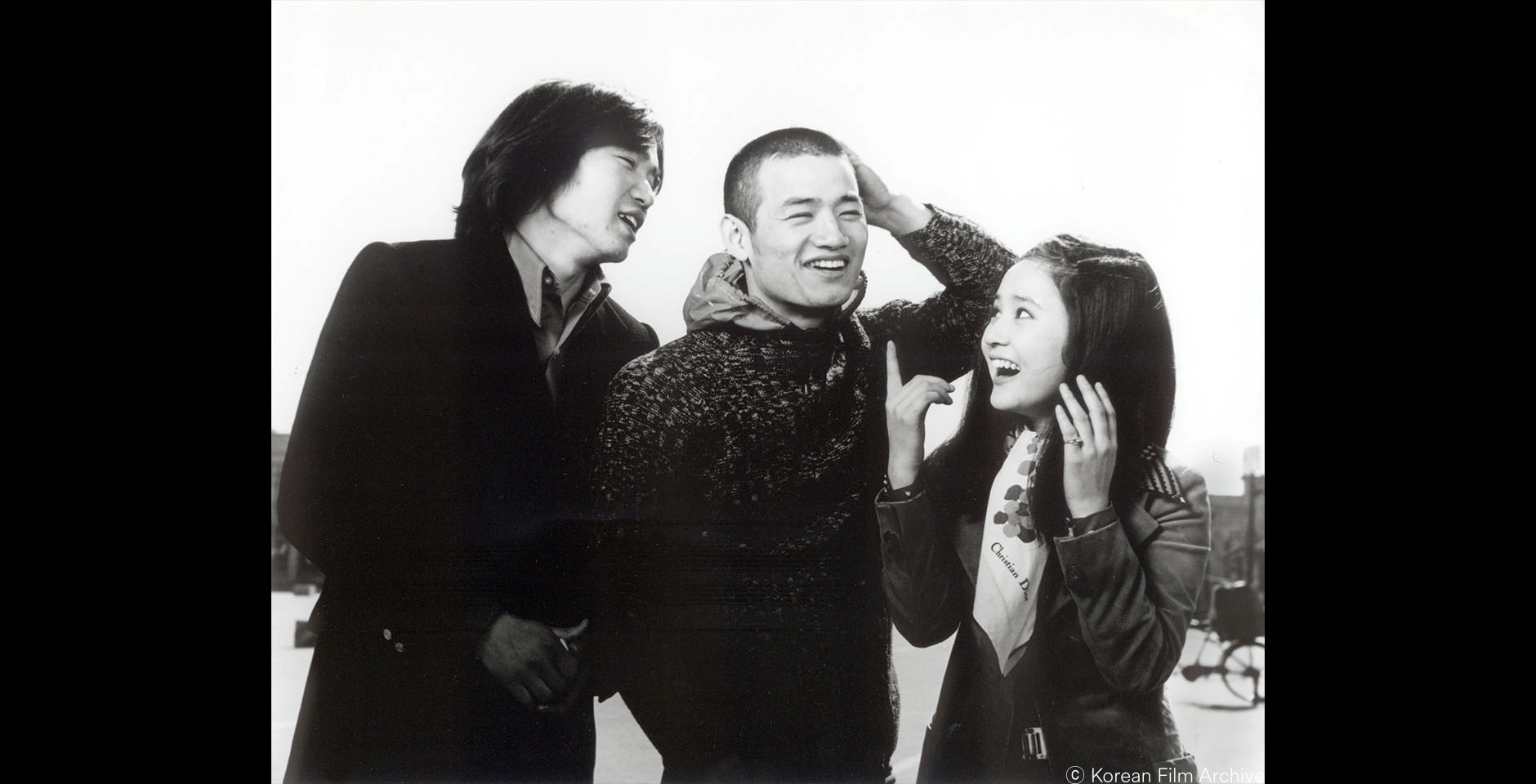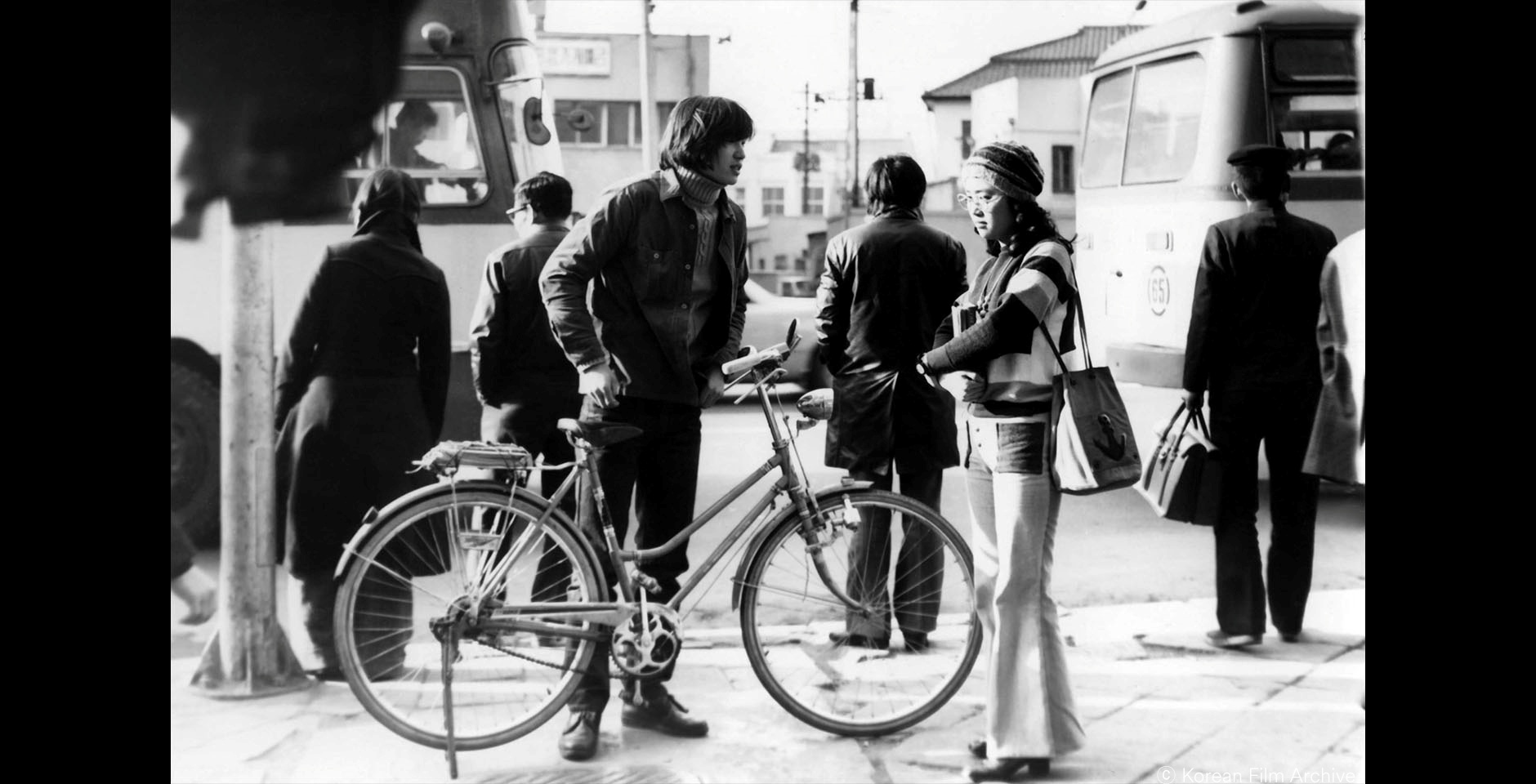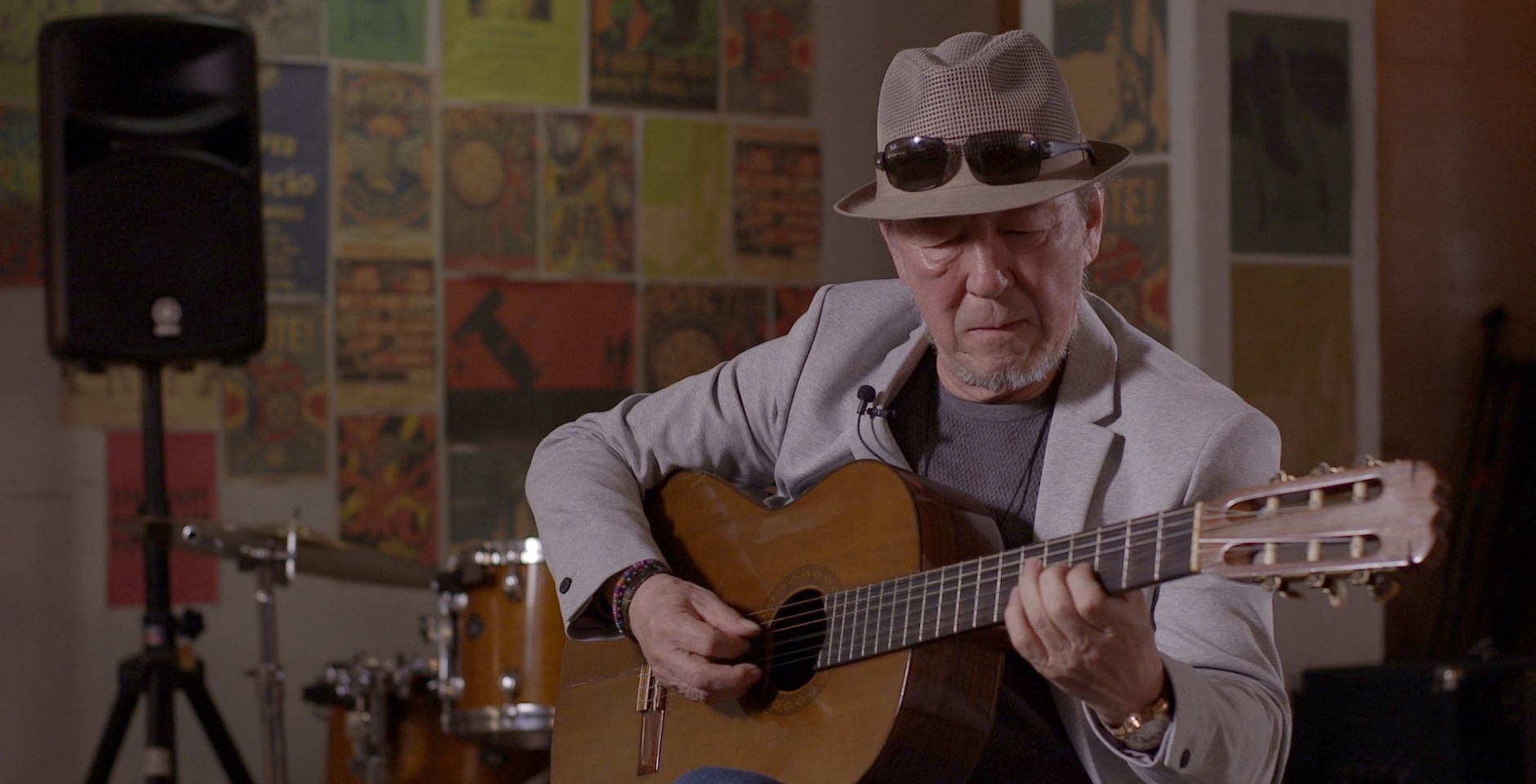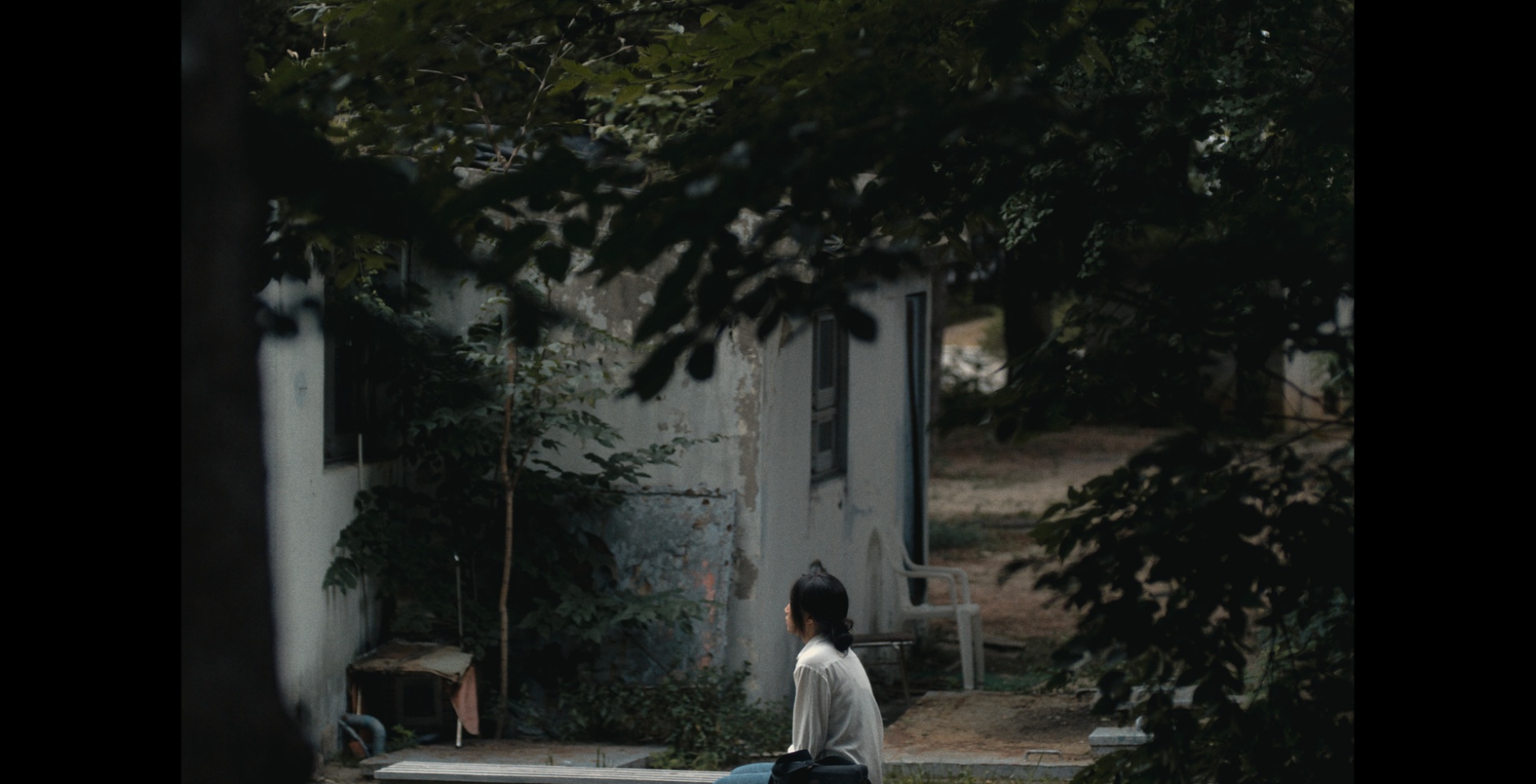The March of Fools
Schedule
Overview
Byeong-tae and Yeong-cheol, philosophy majors in Y College, meet Young-ja and Soon-ja, French majors in H College, through a group meeting. Byeong-tae and Young-ja enjoy their date, but Young-ja suddenly tells Byeong-tae that she cannot see him anymore because she may marry a man she was set up with. Young-cheol, who goes off to look for whales when he’s drunk, tells Soon-ja that he likes her, but she rejects him. Amidst this dire situation, Byeong-tae and Young-cheol go off to sea. Soon, Young-cheol dives into the business of catching whales and Byeong-tae takes an indefinite leave of absence from school and enters the military.
* Source: Korean Film Archive
Less -
Review
The 1970s was an era of censorship, including curfews, restrictions on long hair, and the banning of specific songs. However, it was also a time of resistance, characterized by the student movement, jeans, and acoustic guitars. Choi In-ho’s novels, Song Chang-sik’s, and Lee Jang-hee’s songs were prominent during this period. Then, Ha Gil-jong’s films emerged. Having studied film in the late 1960s in the United States, when New Hollywood masterpieces such as The Graduate (1967), Butch Cassidy and the Sundance Kid (1969), and Easy Rider (1969) poured out, it is not difficult to discern the influence he received from this cultural background in his films. The March of Fools adeptly depicts the society of the harsh time, when everyday life was rigorously managed and controlled like a military by the state authority, sometimes subtly, and at other times directly. What makes this film truly exceptional is its steadfast refusal to take things seriously. Director Ha Gil-jong portrays the youth rebellion against the times with an unwaveringly upbeat tone. He injects a touch of humor through music, an approach that could be considered experimental. In the scene where the protagonist Byeong-tae and his friend Yeong-cheol are chased for their long hair and cling to an overpass guardrail, Song Chang-sik's Why Are You Calling Me plays dissonantly. Likewise, as Yeong-cheol is caught by police while speeding away on his bicycle, Whale Hunting plays, similarly evoking a sense of dissonance. (HUR Jinho)
Less -
Credit
- DirectorHA Gil-jong
- ProducerPARK Jong-chan
- ScreenplayCHOI In-ho
- CinematographyJUNG Il-sung
- GafferSOHN Young-cheol
- Production DesignKIM Yoo-joon
- MusicKANG Geun-shik
- EditorHYUN Dong-choon
- SoundLEE Jae-woong
- CastYOON Moon-seob, HA Jae-young, LEE Young-ok, KIM Young-sook
Film Source
Hwa Chun Trading Co.⎜cinecity7@hanmail.net
Director
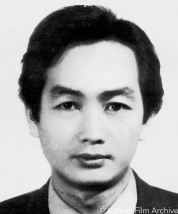
HA Gil-jong
